Few TV shows of 2020 have been as thrilling, funny, and heartbreaking as The Great. The Hulu series is a tonal tight-rope walk as it chronicles (and fictionalizes) the early days of Catherine the Great’s marriage to Peter III of Russia, with Elle Fanning and Nicholas Hoult playing off of one another like they’re having a fierce tennis match. It’s jubilant and harrowing and romantic and hilarious at equal turns, and the fact that it works so well is a testament to the performances and, of course, the writing.
Before showrunner Tony McNamara earned an Oscar nomination for co-writing the 2018 film The Favourite, he wrote a play based on the life of Catherine the Great. He previously attempted to adapt the play into a feature film, before eventually deciding on a TV series format. Enter Hulu, Fanning, and Hoult, and you have one of the best TV shows of 2020.
The Great is Emmy-nominated for Outstanding Writing for a Comedy Series for McNamara’s work on the pilot (and Matt Shakman for Best Director on the same episode), and while I’m still mad as heck that Hoult and Fanning weren’t recognized for their brilliant performances (and that the show itself wasn’t nominated for Best Comedy), I was more than happy to speak with McNamara by phone recently about his work on the series.
During our interview, he talked about the key casting of Fanning and Hoult, the purposeful pace of the show, and why he didn’t want to write all the episodes before they started filming. McNamara also shed some light on some specific plot points from the show’s first season, including why Marial betrayed Catherine and whether Leo’s death was always part of the plan. And with the show renewed for a second season by Hulu, he offered a tease of where The Great Season 2 might be going.
Check out the full interview below.
I know this was first a play and then you tried to make it as a movie screenplay and then it became a season of television, but I’m curious, how did the project change once you cast Nicholas Hoult and Elle Fanning? Because they absolutely command those roles.
TONY MCNAMARA: Yeah. It didn’t really change, I guess. It was sort of like they fit the role so perfect. At first I couldn’t find the people, and then I sort of fixed on those guys, and then once I knew that they wanted to do it, they just fit it in so well. And the three of us have a very similar sensibility, so it’s just like a good match, chemistry-wise. And then you sort of know what you’ve got. You’ve got these great dramatic actors who’ve got great comedy chops. So it doesn’t change, but what, as the writer, it lets you do is like, just write completely fearlessly, knowing there’s nothing I could give them they couldn’t do. So it’s like, yeah, if I dropped 10 pages, and it’s the two-hander across a breakfast table, I know it’s going to be compelling, and they’ll hit the comedy, and they’ll hit the drama. And so, I think for me, it was just like a sort of extra gear of creativity and fun that the show could have, because I knew that there was sort of anything I wrote, they could do it and enhance it and make it brilliant.
I know you worked with Nick on The Favourite, but did you have any idea just how unbelievable he’d be as Peter? Because I think it’s his best performance ever, and that’s saying something.
MCNAMARA: Yeah I sort of did, I think. Because I think on The Favourite, we spent three or four weeks in rehearsal, and. I could just tell how good he was. I already knew he was a great actor, but he just had this instinct. As he would say, the rhythm my writing is sort of the rhythm he thinks in. So straight away, I was like, “We’re a match.” It’s like meeting people of a similar sensibility or it’s like when Yorgos and I met, we’re similar. We would just get each other. And I think with Nick and I, we were just like, “Oh, we’ve got to work together, because we get each other.”
Well, and with Peter, there’s this kind of fine line between despicable and watchable. He’s terrible, but he’s also compelling and entertaining. As you were writing that, what was it like for you to then work with Nick, to kind of figure out a characterization for Peter that would sustain itself for at least one season of television?
MCNAMARA: Well, it’s sort of like once I knew I had Nick, I knew I could get away with a lot. Because you see his good heartedness, so I knew that could happen. And I have to say, I’d always wanted to build a very complicated sort of character like that. As the man, I didn’t want him to just be a buffoon for 10 episodes. He had to have a lot of different levels. And so, I think it’s good. And I think what’s great about Nick — because I never tell them what’s coming, they just get it, and they react to it. So he’s very like, “Give me the script, and I’ll go play it.” But he’s very trusting of the script. We had some conversations early on about where it’s at, but I think he’s very instinctive about how he gets to it. So we don’t like drill down. He gets the script and he just runs with it.
So were you writing as they were in production or had you written all the scripts by the time filming started?
MCNAMARA: No. We shot the pilot and got greenlit, and I’d written one other. So I think I’d written six by the time we started production, and then I was writing while we were shooting. I wrote the other four while we’re shooting, and then the last two, very late.
Did much of what you were seeing, as that footage was coming back, change, either in the structure of the piece or just kind of your characterizations of the characters as you were writing?
MCNAMARA: Yeah. Well, one of the reasons I don’t write at all beforehand is because I want to see what’s happening. I want to watch. I want to cut episodes, and I want to edit episodes and watch who’s playing well with who and what the dynamics are and what kind of stuff’s landing really well and then sort of react to that. So it changed a little bit. Like the ending changed and just sort of certain characters kind of fall a little bit, or there were certain relationships that became really interesting and I probably pulled them out a little to the foreground, whereas I hadn’t originally kind of imagined [it that way]. So you just see stuff happening on screen that you realize you can use in a really good way.
What was the original ending you had planned?
MCNAMARA: Well, I cannot tell you, because maybe it happens in season two now.
That’s fair. Well, I did want to talk about the overall season arc between Catherine and Peter, because it’s such a joy to watch. And I think Elle also is really tremendous in this show. She’s kind of naive coming into it, and then by the end of the season, she’s ready to kill Peter. She’s wanted to kill Peter throughout the season, but she’s not ready to do it yet. And it ends on such a strong note. It was much sadder than I anticipated and really powerful and kind of moving.
MCNAMARA: Yeah, I think that’s one of the things about having .. I mean, Elle is just such a great dramatic actress. She’s a great storyteller. If you say to someone, “Well, in one season, you’ve got to go from a really idealistic, lovesick, naive kid, to a woman who’s going to take over a country and kill people.” It’s not that easy to pull that off, and she does it in spades, and builds this beautiful up and down arc through. And I think that to me, when I was casting her, I just knew, even though I was executing the show as a comedy, that at it its heart, I wanted it to be an emotional show as well. And she just carries that. That’s the big carry, as well as carrying a lot of the comedy and she’s just extraordinary.
She’s phenomenal. One of the most shocking turns in the season that I wanted to talk to you about is when Marial betrays Catherine, and it could be for Catherine’s benefit, but I was wondering if you could talk about that kind of decision. Because Marial is one of Catherine’s only friends and it’s really impactful when it happens.
MCNAMARA: I think because I think the thing about the Marial story is like the rest of the court, she’s basically based everything in self-interest, and in saving yourself and being safe in a court that’s dangerous. So I think ultimately for her, she’s not trying to win for Russia, she’s trying to win for herself. And in that moment, she decides the way to win for herself and save Catherine is to do what she does.
I think she thinks it’s a totally logical thing to do, that to pull the pin on this and save Catherine and probably save herself and get what she’s always wanted, which was to get to be a lady again. If she can do all that in one stroke, that makes sense to her. But from Catherine’s point of view, that’s betrayal, but I was always like Marial never buys in to the philosophy of this. She literally just wants her shit back (laughs). So I was always like, you gather together these people for a coup, but they’re not all on your page. They’re all doing it for their own reasons, and she was one of those people. Despite her friendship and love for Catherine, she lives where she lives as far as she’s concerned, and she’s got to deal with it. So yeah, I was always going to do it, like it was plotted from the get-go.
It’s an intense moment. And like you say, there’s a tension underlying every single episode, no matter how funny it is, because she is telling other people that she’s going to take over, she’s going to perform a coup, and that’s very dangerous. And as you say, they’re all doing it for their own reasons.
MCNAMARA: Yeah. Yeah, totally.
And then another highlight, I think, that came as a bit of a surprise is Catherine’s romance with Leo, which is one of the more heartbreaking aspects of the show as well. How did you kind of approach that relationship, and did you always intend for Leo to be killed by the end of the season?
MCNAMARA: Yeah, I did. Yeah. I did intend him to be killed. I mean, I think it was just like the thing of she arrives as a romantic, thinking a great love is what she wants when she starts with this coup, and it’s like, “Oh, actually, I think I have a sense of destiny for a great life.” But then she gets the great love as well. And then I was like, “Well, at some point she’s got to choose.” And she keeps telling people throughout the first season, “This is going to take sacrifice.” But she’s 21. She doesn’t realize she’ll have to do it. She’s like, “You’ll have to sacrifice things.” But it’s like that 21-year-old thing of like, “But I won’t. I’ll have everything.” You know?
Yeah. That’s very true. So much of the series is about pace, and how you use pace to create humor and intention and romance. It moves very quickly. And then when it does slow down, there’s this kind of gut feeling that something either terrible or lovely is about to happen. So I wondered how you kind of approach pace from a script perspective, or is that something you work out with the directors?
MCNAMARA: No, not really. I mean, I think it was always, like one thing I wanted was pace, so everyone’s instructed to go at a pace. I mean, the actors, sort of everyone. Narratively, I pushed the pace, I pushed the story hard. I pushed the characters, and the rhythm of the dialogue is all about pace, and then occasionally we slow down. But I think it’s a mixture of — period shows are usually pretty languid and slow. And I was like, “I don’t want that.” I want a really pace-y show, where it feels like people have got stakes. They haven’t got a lot of time to make decisions. And a lot of it’s the comedy factor. It’s the rhythm. I write dialogue and it’s best delivered at speed. You know?
So probably that’s the most driving part of it, is the rhythm and the tone of the show is built from the way I write dialogue. And so, that is about pace. That is about being delivered in a certain way and you can’t really deliver it slow, and I don’t want it delivered slow. So everyone — directors and actors — is instructed to go at speed.
I remember when the show was first announced, it was described as a miniseries, and obviously, now it’s been renewed for season two. Did you envision it kind of a close-ended thing at the end of season one? Or were you hoping to be able to have more seasons to tell your story?
MCNAMARA: No, I think I always wanted a couple of seasons to tell this story, really. I’m glad I got it.
Do you have an ideal number in mind?
MCNAMARA: Oh, not really. I mean, we could tell it four. We could probably tell it in three. I don’t really know. I mean, it’s like now I recognize the characters are so great across the board. We have 12 great actors playing really great characters and that’s just good TV. So it does seem like there’s a lot to get out of them. So I’m not sure. At the moment, I’m just telling the story and see where we get to.
What can you say about season two? Have you started writing yet?
MCNAMARA: Yeah. I just started the first couple, just writing the first two episodes. It’s very fun. I mean, it’s the same style of show. There are some very surprising things that shift the gears a little bit. But yeah, I’ve sort of been telling Nick and Elle about it the other night, and I was very excited. So I think it’s pretty cool.
It’s a bit of an unfair comparison, because The Crown is a very different show, but is it something like The Crown, where you envision kind of time jumps to kind of cover more ground of Catherine the Great’s story?
MCNAMARA: I think initially I did. I think the initial pitch was we’d sort of do a few seasons of young and a couple of seasons of middle. But at the moment, that’s sort of in the deep background in my mind. I’m happy where I am with these guys.
Well, and obviously you don’t want to lose Nick and Elle. I mean, that’s just incredible casting.
MCNAMARA: Well, exactly. Yeah. And we have such a great time together. It’s hard to imagine wanting to move on. I mean, I think they will, because they’re great.
I think that’s part of the appeal for actors of their caliber nowadays is you can come in and do a TV show and you’re not signed for eight, nine, 10 years of your life.
MCNAMARA: Yeah, exactly. I think that’s the thing. I mean, we’ve never pitched to them as seven years. It was always like these finite sort of number of years we do together if there was a story we can tell at a certain amount of time, and we could probably extend it if we were loving what we were doing.
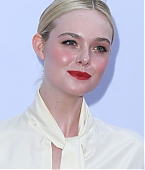
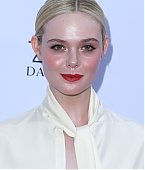
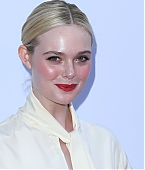

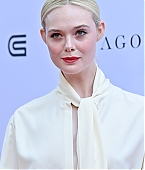



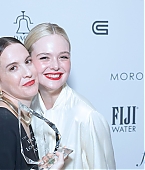
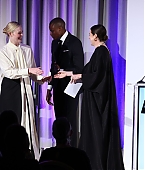
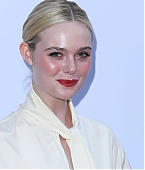
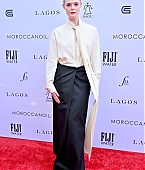
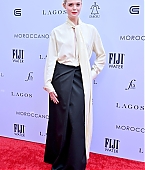
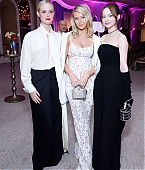
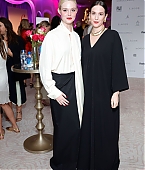
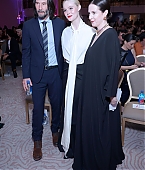
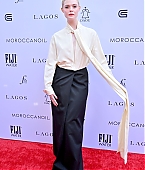
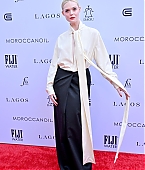
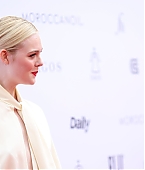
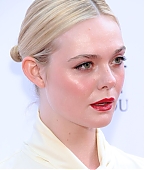
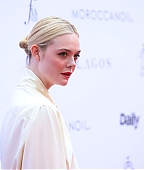
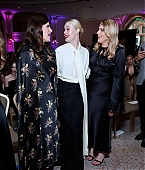
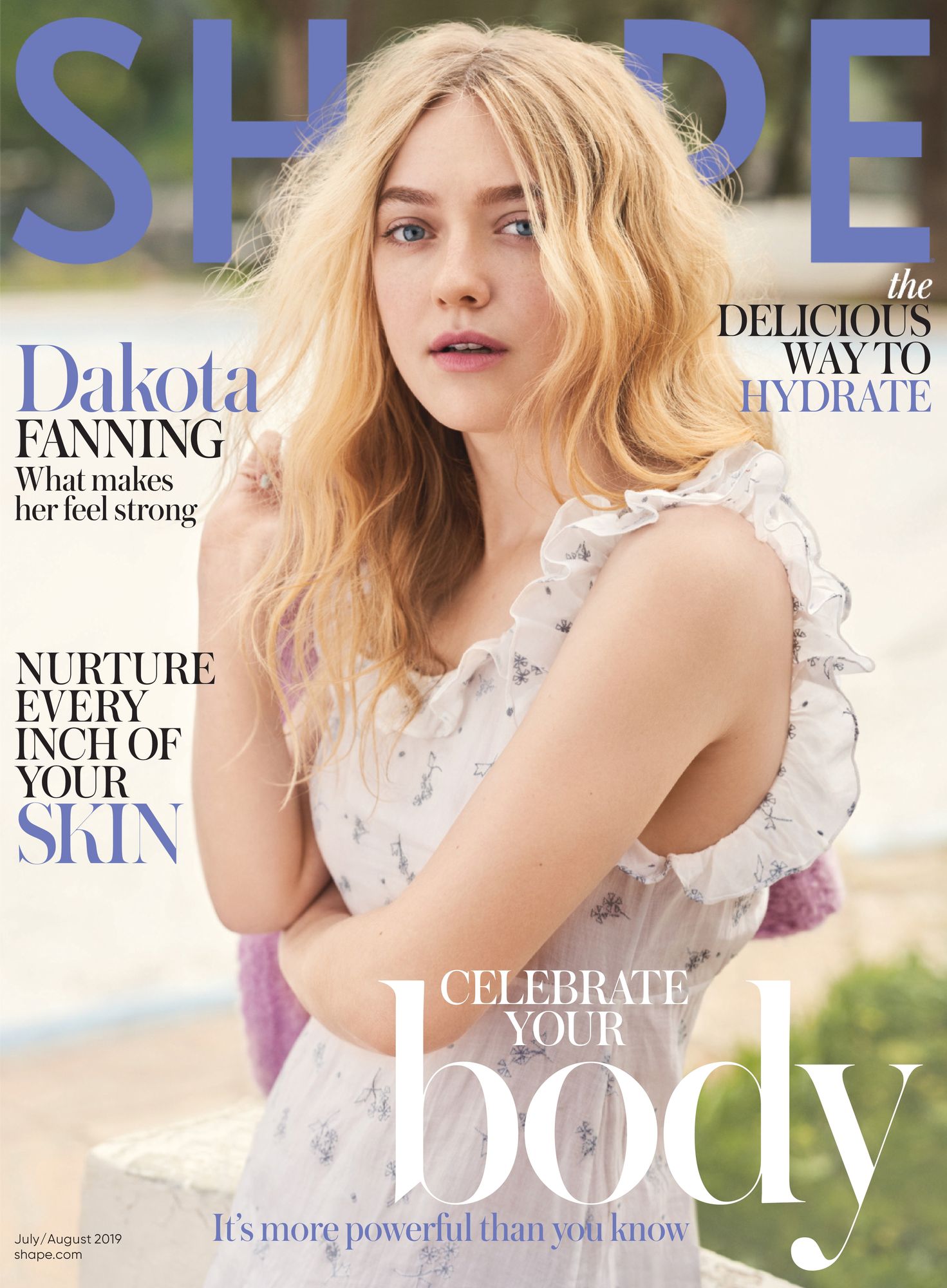




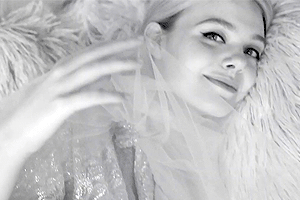
You must be logged in to post a comment.